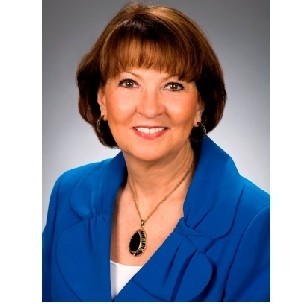UNG was created in January through the consolidation of Gainesville State College and North Georgia College & State University. Over the past 18 months, faculty and staff have worked to establish common processes, calendars, departments, and databases to enable students to take advantage of UNG's broad scope of academic programs, which range from associate degrees to professional doctoral degrees.
"I believe we are blazing a mighty trail in the world of higher education, and we are gaining momentum to become a university of national distinction," Jacobs said.
UNG has campuses in Cumming, Dahlonega, Gainesville and Oconee County and some 15,000 students. UNG directly employs some 1,900 people; about 940 of those are staff and administration, including more than 200 who work part-time. The university has more than 960 faculty members, including about 500 who are employed part-time.
Though each campus has its own distinctive culture and signature elements, Jacobs noted that all are united by shared values and goals.
"We are all connected under the UNG umbrella by four pillars that permeate every aspect of the university and every campus community. These pillars are leadership, engagement, student success, and a commitment to excellence," Jacobs said. "These shared tenets are a source of strength and create the foundation for enduring success and a holistic educational experience that sets UNG apart from any other institution in the country."
Jacobs also noted that faculty and staff should not rely on doing things the way they've always done them and that this is a "time for innovation" across the university. Toward that end, she announced three new initiatives to encourage faculty development and innovation.
"Our goal is not to become like every other university, but to embrace the challenges we face and to build upon our strengths to be stronger than the sum of our parts. Big challenges can lead to greatness," Jacobs said. "I envision an environment fueled by creative and innovative ideas and aspirations. To accomplish this, we are going to make an unprecedented investment in our people and in our programs."
The three initiatives, which total $200,000 in grant opportunities, are:
· Presidential Professional Engagement Awards: Twenty-five awards of up to $2,000 each will support professional development opportunities for faculty to remain state-of-the-art in their disciplines.
· Presidential Summer Scholar Awards: Six awards of up to $10,000 each for tenured or tenure-track faculty to support research or scholarly and creative activities.
· Presidential Academic Innovation Awards: Ten awards of up to $5,000 each and 40 awards of up to $1,000 each to support initiatives in teaching and learning and student success. These awards, in particular, will encourage collaboration among faculty and staff and could involve multidisciplinary projects.
Funding will be provided to support activities spanning Jan. 1 to Dec. 31, 2014. The Faculty Senate will appoint committees to accept and review applications for the grants.
Faculty Senate Chairman Mark Spraker said Jacobs' announcement already has created a positive buzz among faculty members.
"This is an amazing commitment for the future of the institution," Spraker said. "For several years, because of the economic downturn, we have seen declines in funding support for travel and for our scholarly activities. This is a wonderful step toward a much brighter future for the university. I really do think you're going to see a large number of very good applications for these funds."
Jacobs announced the creation of a new position, the assistant dean for student research and scholarship, to support and expand initiatives in undergraduate research. This person will report to Dr. Eric Skipper, dean of honors and graduate studies, who is confident that some of UNG's associate and baccalaureate students are capable of earning nationally competitive and prestigious scholarships, such as Goldwaters, Fulbrights, Jack Kent Cook, and others.
Jacobs also announced a new award, the "North Star Award," to recognize the customer service efforts by staff that will be presented to recipients each semester on each campus. Additionally, new departmental awards are planned to recognize individual contributions to departmental and university success.
"Our professional, administrative and service staff members are integral to the success of the university and our students, and I am increasingly encouraged by the performance I've seen," Jacobs said.
This fall, UNG welcomes some 60 new faculty members, including Alex Kraft, a new ceramics instructor in the Department of Visual Arts who previously lived and taught in New Mexico and the Southwest.
"I was just really thrilled with the opportunities available and the growth in the program. The location is phenomenal, and I'll be working with a really dynamic group of people," Kraft said. "This truly is a dream come true for me, to be able to have this ceramics studio and to be able to teach ceramics."
In closing, Jacobs asked UNG faculty and staff to look toward the future of the university and its students.
"I encourage you all to contribute to our forward-looking strategic planning process that will continue this fall. The planning process encompasses our shared vision and values, identification of institutional priorities, strategic partnerships, and sustainability. Your participation will help shape UNG for years to come," Jacobs said. "In closing, I ask you again to imagine what we can become. Imagine the educational, cultural and economic impact on our region. Imagine the legacy for generations of students."

"I envision an environment fueled by creative and innovative ideas and aspirations," UNG President Dr. Bonita Jacobs said. "To accomplish this, we are going to make an unprecedented investment in our people and in our programs" through three initia
http://accesswdun.com/article/2013/8/264492
